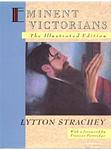Lytton Strachey
Lytton Strachey was a British writer and critic, best known for his work in biographies. Born on March 1, 1880, in London, he was a prominent member of the Bloomsbury Group. Strachey revolutionized the art of biography with his 1918 publication 'Eminent Victorians,' which painted intimate and sometimes scathing portraits of notable figures from the Victorian era. His approach was characterized by his elegant prose and his use of wit to critique the social norms and mores of his time. Strachey's influence extended beyond his literary work, as he is also noted for his contributions to the development of modernist thought. He passed away on January 21, 1932.
Books
This list of books are ONLY the books that have been ranked on the lists that are aggregated on this site. This is not a comprehensive list of all books by this author.
-
1. Eminent Victorians
"Eminent Victorians" is a biographical work that profiles four influential figures from the Victorian era. The book provides an in-depth look into the lives of Cardinal Manning, Florence Nightingale, Thomas Arnold, and General Gordon, exploring their respective contributions to British society during the 19th century. Through these portraits, the book offers a critical and often satirical analysis of Victorian values, institutions, and moral attitudes, challenging the idealized narrative of the era.
-
2. Queen Victoria
This biography provides an intimate exploration of Queen Victoria's life, revealing her personal relationships, her struggles with the responsibilities of monarchy, and her complex personality. The author challenges the conventional, staid image of the queen, presenting her as a woman of passionate sensibilities, strong prejudices, and intense emotional energy. The narrative not only delves into her interactions with her family and her Prime Ministers but also examines the broader political and social changes of her time. Through a blend of psychological insight and historical detail, the book paints a vivid portrait of both the queen and the era she defined.

